LONDON: On Nov. 5 many Arab Americans, disenchanted with the Biden administration’s failure to curb Israel’s deadly military interventions in Gaza and Lebanon, abandoned their traditional support for the Democratic party and voted in record numbers for Donald Trump.
As revealed by an Arab News/YouGov poll in the run-up to the US presidential election, Arab Americans believed that Trump would be more likely than Kamala Harris to successfully resolve the Israel-Palestine conflict — even though he was seen as more supportive of Israel’s government than his opponent.
They also felt that Trump would be at least as good for the Middle East in general as Kamala Harris.
Now, however, as Trump reveals his picks for the key roles in his administration, it is becoming clearer what impact that protest vote might have on the Middle East, and on Palestinians.

A billboard that displays a photo of US President-elect Donald Trump is projected a day after the US election, in Tel Aviv, Israel, on Nov. 6, 2024. (AP)
Some of the hires will have to be approved by Senate hearings. But amid talk that Trump’s team is planning to bypass vetting by making so-called recess appointments, many of the choices have raised eyebrows in Washington.
In terms of what Trump’s new team might mean for the Middle East in general, it is perhaps enough to know that Israel is celebrating both Trump’s victory and his picks for key positions.
“Some of the announcements,” commented The Jerusalem Post, “like a new ambassador to the UN and Israel, as well as for an incoming national security adviser and special envoy to the Middle East, are all positive developments in terms of shaping a team that will be supportive of Israel, and strong in the face of adversaries, such as Iran.”
According to a CNN report, current and former US officials have cautioned against assuming that the intelligence community is uniformly opposed to Trump. Across the 18 agencies that include thousands of analysts and operators, there are plenty who support him and likely welcome his return.
Marco Rubio — Secretary of State
The appointment of Rubio, a Florida Republican senator known for his advocacy of a muscular US foreign policy, appears at odds with Trump’s oft-professed intention to see America withdraw from its role as the world’s policeman.
One of the “20 core promises to make America great again” in his Agenda 47 manifesto was a pledge to “strengthen and modernize our military, making it, without question, the strongest and most powerful in the world.”
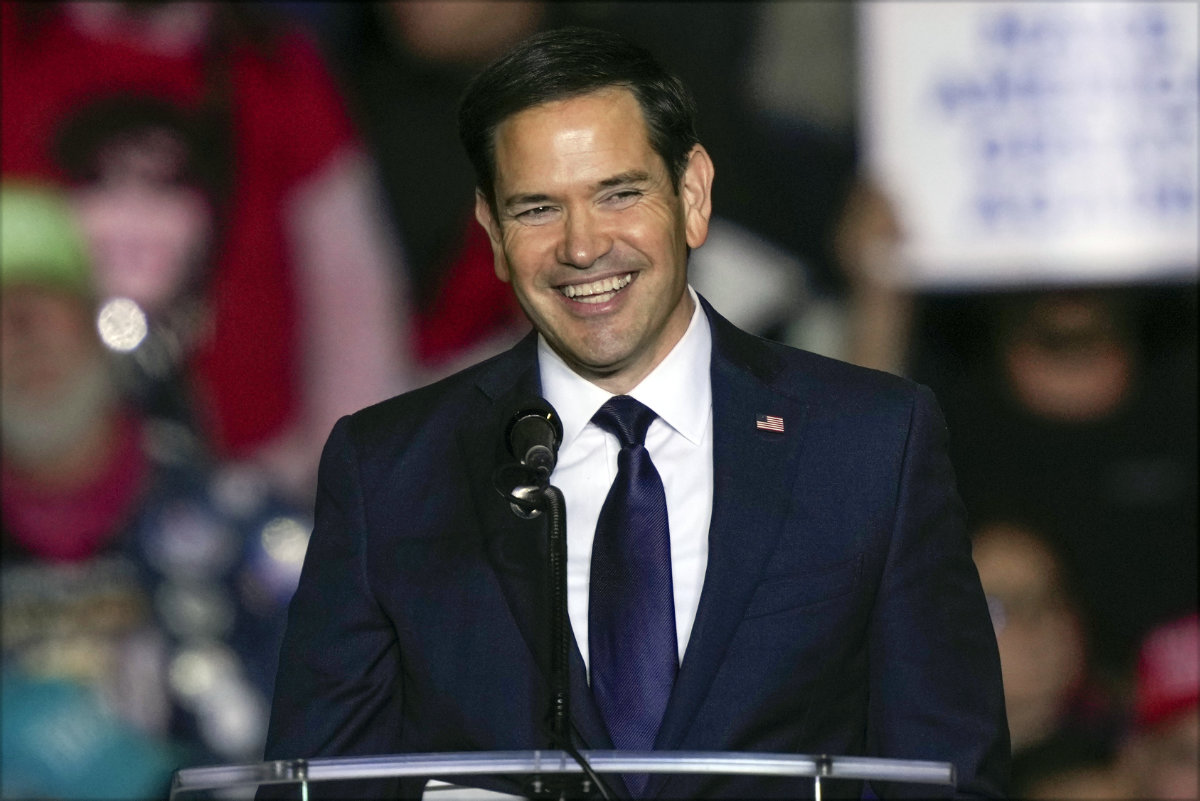
Marco Rubio. (AP photo)
On the other hand, Trump has promised to ensure that “our government uses that great strength sparingly, and only in clear instances where our national interests are threatened.”
In 2016, when he ran against Trump for the Republican presidential nomination, Rubio repeatedly criticized his rival’s isolationist foreign policy, saying “a world without our engagement is not a world we want to live in.
Rubio, a former member of the Foreign Relations Committee and the Select Committee on Intelligence, doubtless brings a great deal of foreign-policy experience to the Trump team, along with a reputation for being a hawk, ready to take a hard line on Iran and China.
He also brings a strong commitment to Israel.
In footage of a 2023 confrontation between Rubio and activists of the group CODEPINK in Washington, Rubio replied, when asked if he would support a ceasefire, “No I will not,” adding “I want (Israel) to destroy every element of Hamas.”
Pressed to say if he cared about “the babies that are getting killed every day,” he replied: “I think it’s terrible, and I think Hamas is 100 percent to blame.”
Following Iran’s missile attack on Israel in October — carried out in retaliation for Israel’s killing of Hamas leader Ismael Haniyeh in Tehran — Rubio defended Israel's “right to respond disproportionately.”
Israel, he added, “should respond to Iran the way the US would respond if some country launched 180 missiles at us.”
In a tweet on Wednesday after his nomination was confirmed, Rubio said he would work to carry out Trump’s foreign policy agenda and under his leadership “we will deliver peace through strength and always put the interests of Americans and America above all else.”
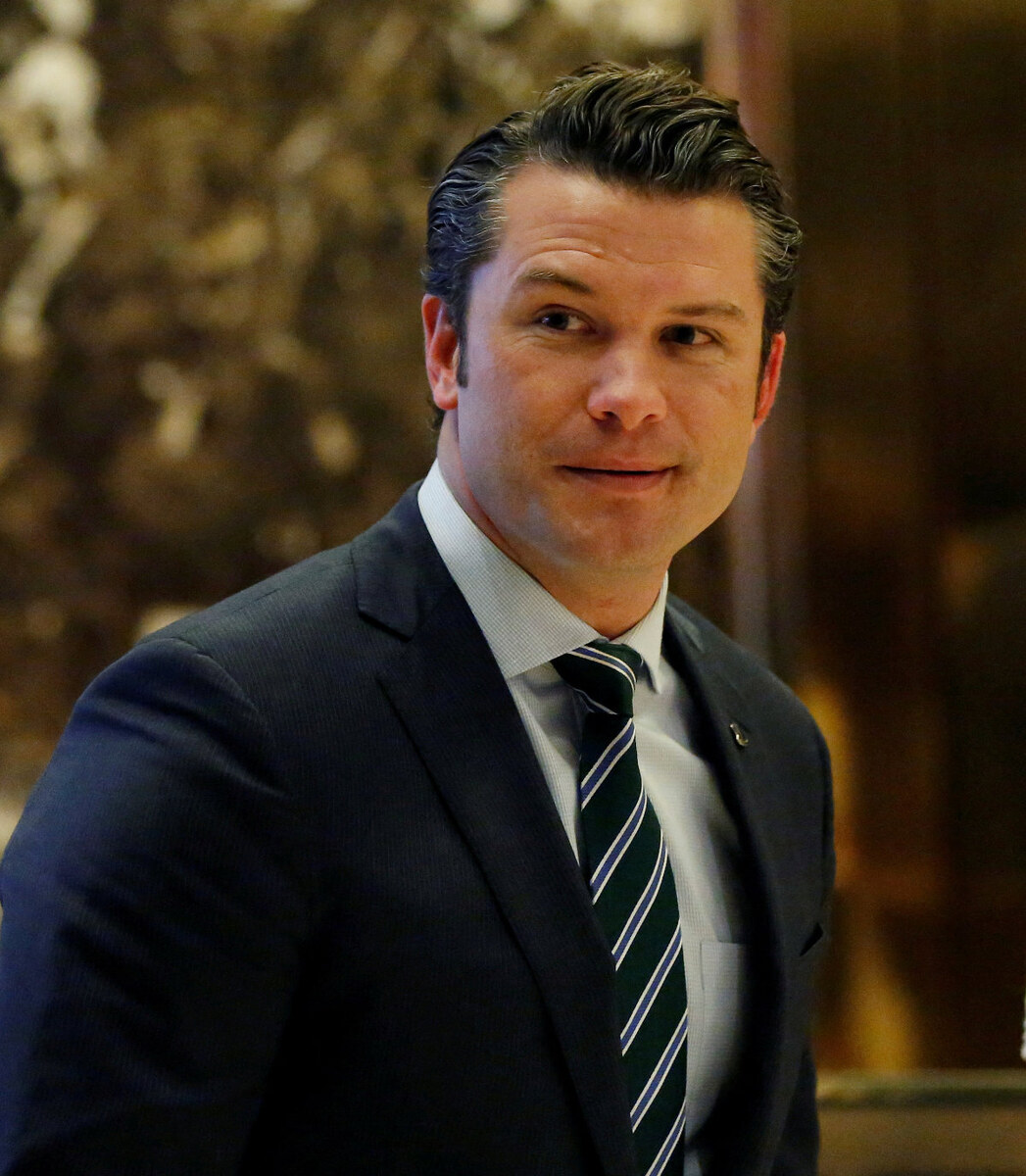
Pete Hegseth. (Reuters photo)
Pete Hegseth — Secretary of Defense
Many in Washington — and everyone in the Pentagon — are still trying to digest the news that the new man chosen to be in charge of America’s vast military machine is a 44-year-old presenter on Fox News, Trump’s favorite TV channel.
Hegseth, a co-host of the program “Fox & Friends Weekend” who has regularly interviewed Trump on the show, has been a staunch critic of “wokeness” in the military, demanding the sacking of any “general, admiral, whatever” involved in promoting the previous Democratic administrations’ agenda of diversity, equality and inclusivity.
Furthermore, he has spoken out in defense of US soldiers accused of war crimes committed in the region, condemning “the betrayal of the men who keep us free” in his latest book, “The War on Warriors.”
During Trump’s first term in office, he lobbied successfully for presidential pardons for three US soldiers who had been charged with, or had already been found guilty of, war crimes in Afghanistan and Iraq.
Hegseth’s on-the-ground military experience has given him a grunt’s perspective on warfare. He rose to the rank of major in the Minnesota National Guard and served tours in Iraq and Afghanistan. But according to a statement from Paul Rieckhoff, founder of Iraq and Afghanistan Veterans of America, he is “undoubtedly the least qualified nominee for (defense secretary) in American history, and the most overtly political.”
Former Republican congressman Adam Kinzinger, himself a veteran, was more direct. Hegseth’s nomination, he said, is “the most hilariously predictably stupid thing” that Trump could have done.
Or dangerous. Clues to Hegseth’s worldview can be found among the many tattoos he sports. They include the 11th-century Latin Crusader rallying cry “Deus Vult,” “God wills it,” alongside a large “Jerusalem cross,” the symbol adopted by the Crusaders who sacked Jerusalem in 1099, slaughtering tens of thousands of Muslims and Jews in the city.
In the US the symbol is associated with far-right white nationalist movements. In 2016 Hegseth, then in the national guard, was withdrawn from guard duty at Biden’s inauguration because of the tattoo.
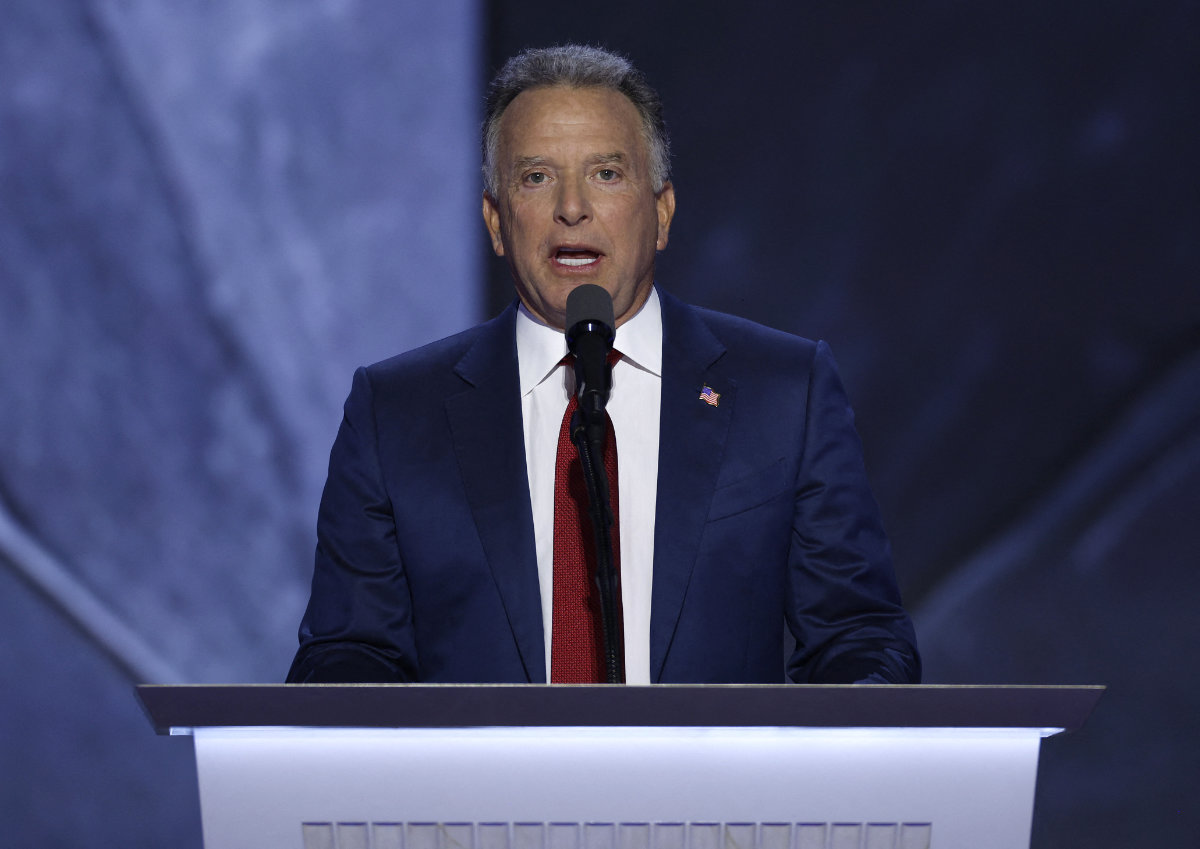
Steven Witkoff. (Getty Images via AFP)
Steven Witkoff — Special Middle East envoy
A real-estate tycoon and a long-time friend and golfing buddy of Trump’s, Witkoff has no diplomatic experience but is an uncompromising friend of Israel.
When President Biden paused weapons shipments to Israel in May because of concerns about Israel’s military campaign in Gaza, Witkoff responded by raising millions of dollars for Trump’s presidential campaign from wealthy US Jewish donors.
After attending Israeli Prime Minister Benjamin Netanyahu’s speech to Congress in July, Witkoff told Fox News “it was spiritual … it was epic to be in that room.”
Witkoff has no known experience of diplomacy or the Middle East. Nevertheless, Trump said in a statement, “Steve will be an unrelenting Voice for PEACE, and make us all proud.”
Witkoff will now be point man for Trump’s two big unfulfilled ambitions for the Middle East: an Israel-Palestine peace deal and normalization of relations between Israel and Saudi Arabia.
The Kingdom has made clear that the latter is dependent upon meaningful progress toward sovereignty for the Palestinian people. Witkoff’s views on that are currently unknown, but it seems unlikely they would differ greatly from those of others in the new administration for whom the creation of a Palestinian state is anathema.
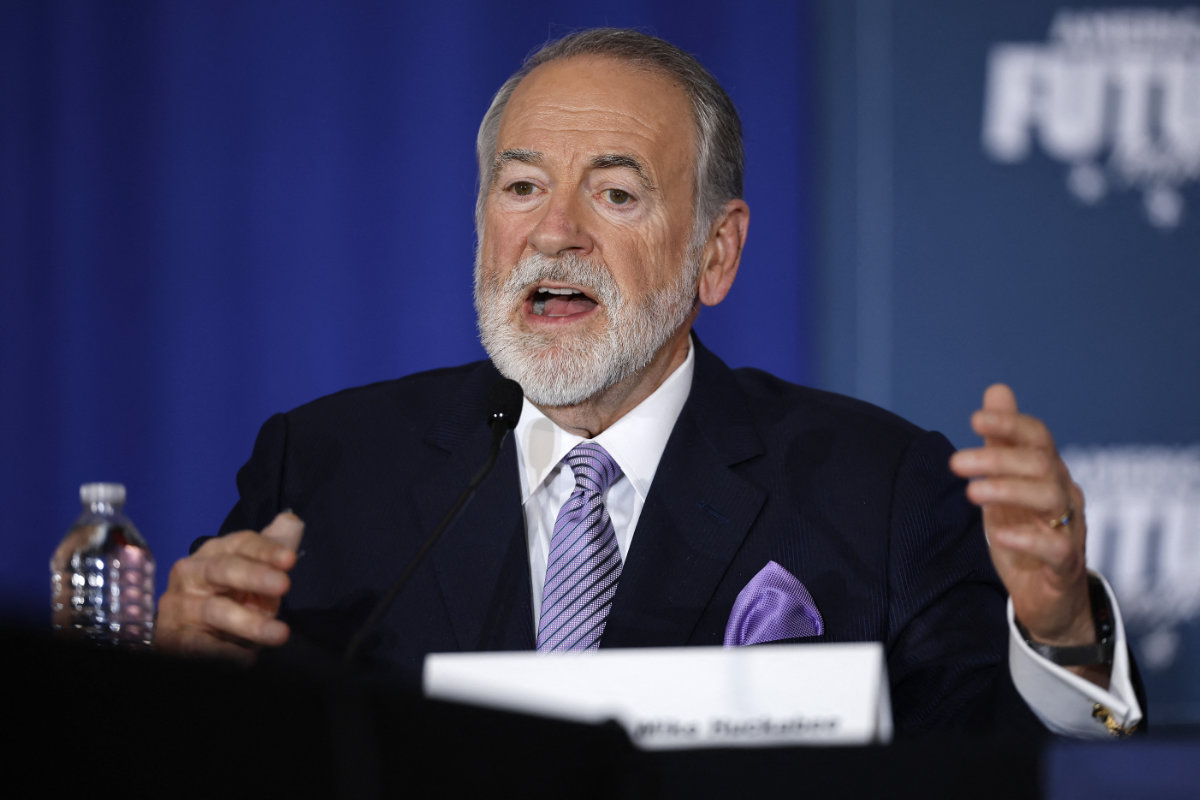
Mike Huckabee. (Getty Images via AFP))
Mike Huckabee — Ambassador to Israel
Of all Trump’s appointments, the one that has been received most rapturously in Israel is the naming of the former governor of Arkansas as America’s new ambassador to the country.
The appointment is seen by the Netanyahu government as a sign not only that the new administration will allow Israel to continue its provocative settlements campaign in the occupied territories, but also that Trump is giving the green light to plans for the full annexation of the West Bank.
Huckabee has always been a staunch defender of Israel. He once said there was “no such thing as a Palestinian,” suggesting the term was nothing more than a “political tool to try and force land away from Israel.”
He has taken part in at least two cornerstone-laying ceremonies at new Israeli settlements in occupied East Jerusalem. At one he attended in 2017 he said there was “no such thing as a settlement. They’re communities, they’re neighborhoods, they’re cities. There’s no such thing as an occupation.”
Unsurprisingly, his appointment has been welcomed by far-right Israeli ministers, including Itamar Ben-Gvir, the national security minister who has led repeated provocative incursions by extremist settlers into the Al-Aqsa Mosque compound, and Finance Minister Bezalel Smotrich, who sent congratulations to “a consistent and loyal friend.”
On Monday Smotrich said Trump’s victory represented an “important opportunity” to “apply Israeli sovereignty to the settlements in Judea and Samaria,” the Jewish biblical names for parts of the West Bank. The year 2025, he added, “will, with God’s help, be the year of sovereignty in Judea and Samaria.”
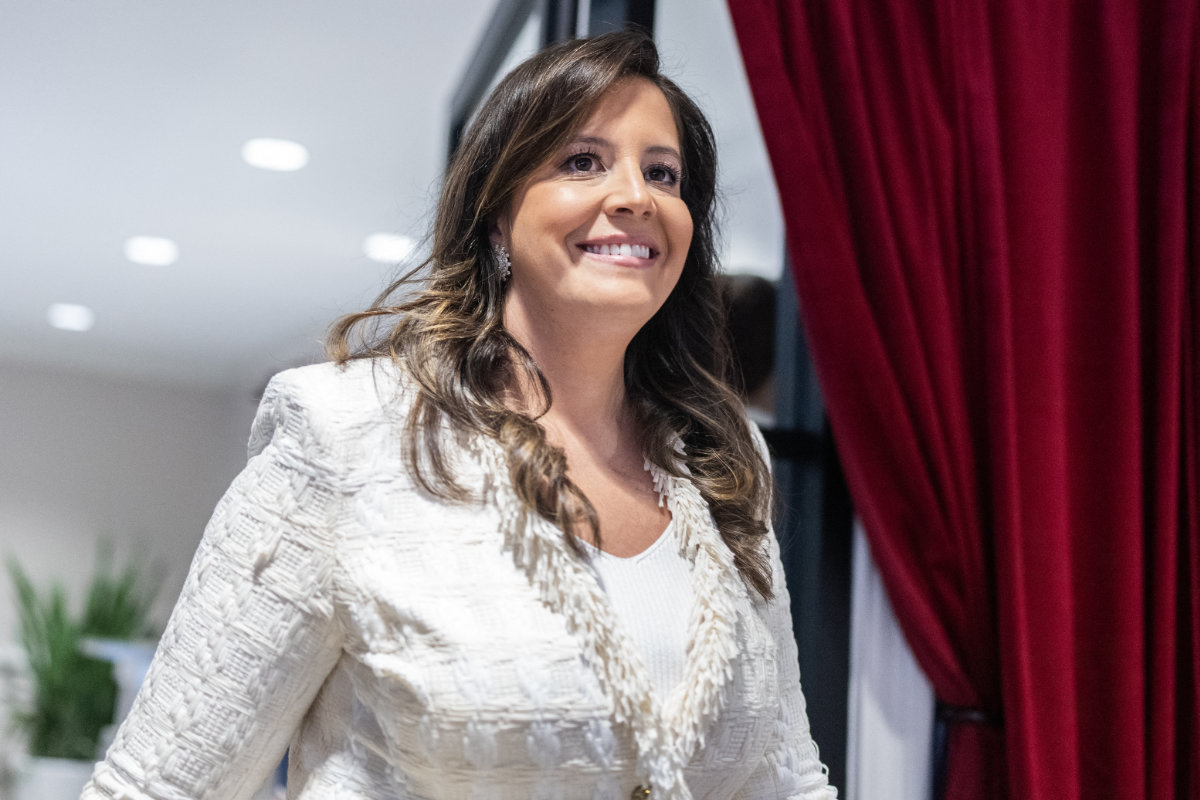
Elise Stefanik. (Getty Images via AFP)
Elise Stefanik — Ambassador to the UN
A decade ago, aged 30, Stefanik was the youngest member of Congress. Since then, she has drifted from the center of the Republican party to the right. In the process, she has become a strong supporter of Trump, defending his attempt to overturn the 2020 presidential election result and describing those arrested for their part in the assault on the Capital as “Jan. 6 hostages.”
She has also been a vocal ally of Israel, which she has visited many times.
In 2023 she won praise from the US Jewish community for her aggressive questioning during a congressional hearing of college leaders, whom she accused of turning a blind eye to antisemitism during campus protests.
In March, she was honored for her stance at the Zionist Organization of America’s “Heroes of Israel” gala, where she was given the “Dr. Miriam and Sheldon Adelson Defender of Israel Award.”
In her acceptance speech, Stefanik criticized Joe Biden’s “unconscionable actions and words that undermine the Israeli war effort.” She would, she said, “always be committed to supporting Israel’s right to defend itself … and I will continue to stand with Israel to ensure (it has) the resources it needs in this darkest hour.”
On Thursday the UN Special Committee to Investigate Israeli Practices Affecting the Human Rights of the Palestinian People and Other Arabs of the Occupied Territories found that “Israel’s warfare in Gaza is consistent with the characteristics of genocide, with mass civilian casualties and life-threatening conditions intentionally imposed on Palestinians there.”
As US ambassador, Stefanik — who has been openly critical of the UN for what she calls its “entrenched antisemitic bias” — will be perfectly positioned to push back against such claims.
The Washington Post predicted that Stefanik “will use her position at the United Nations to assail UN agencies and diplomats over any criticism of Israel, and air long-standing Republican grievances over the workings of the world’s most important multilateral institution.”
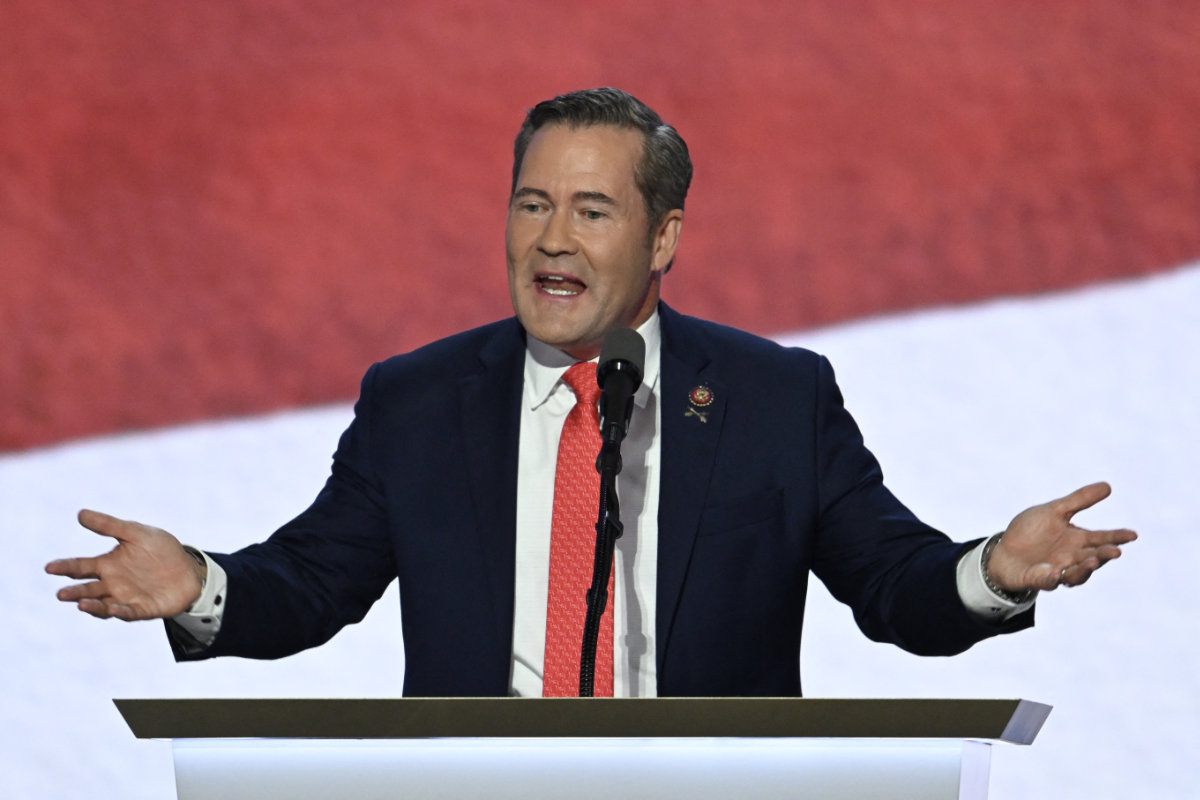
Michael Waltz. (Getty Images via AFP)
Michael Waltz — National Security Adviser
Florida Congressman Waltz, a former colonel in the US Army with multiple tours of Afghanistan and Iraq and four Bronze Stars to his name, is one of the few top-level Trump hires who brings relevant expertise to his new job.
A former special forces Green Beret, he served as a defense policy director for secretaries of state Donald Rumsfeld and Robert Gates — and navigating Washington’s corridors of power is a skill that runs in the family.
His wife is Julia Nesheiwat, the daughter of Jordanian immigrants who came to America in the 1950s. She is a former captain in the US Army’s Intelligence Corps and served in Afghanistan and Iraq. She also held national security roles in the Bush, Obama and previous Trump administrations.
Waltz is a member of the Kurdish-American Caucus in Congress, which “promotes knowledge and understanding of the Kurds, a distinct group of over 30 million living in Iraq, Turkey, Iran, Syria, the US and elsewhere globally.”
The Caucus believes that Kurdistan is “a beacon of stability and security in Iraq, deserves strong US support,” and is “a vital ally in protecting US interests in Iraq and the entire region.” Iraqi Kurdistan, it says, is not only “vital to any vision of a peaceful and prosperous Iraq,” but also “critically serves as a break in the crescent from Iran to Lebanon.”
Waltz’s appointment, the Kurdistan 24 network commented, is “very good news for the Kurds.”
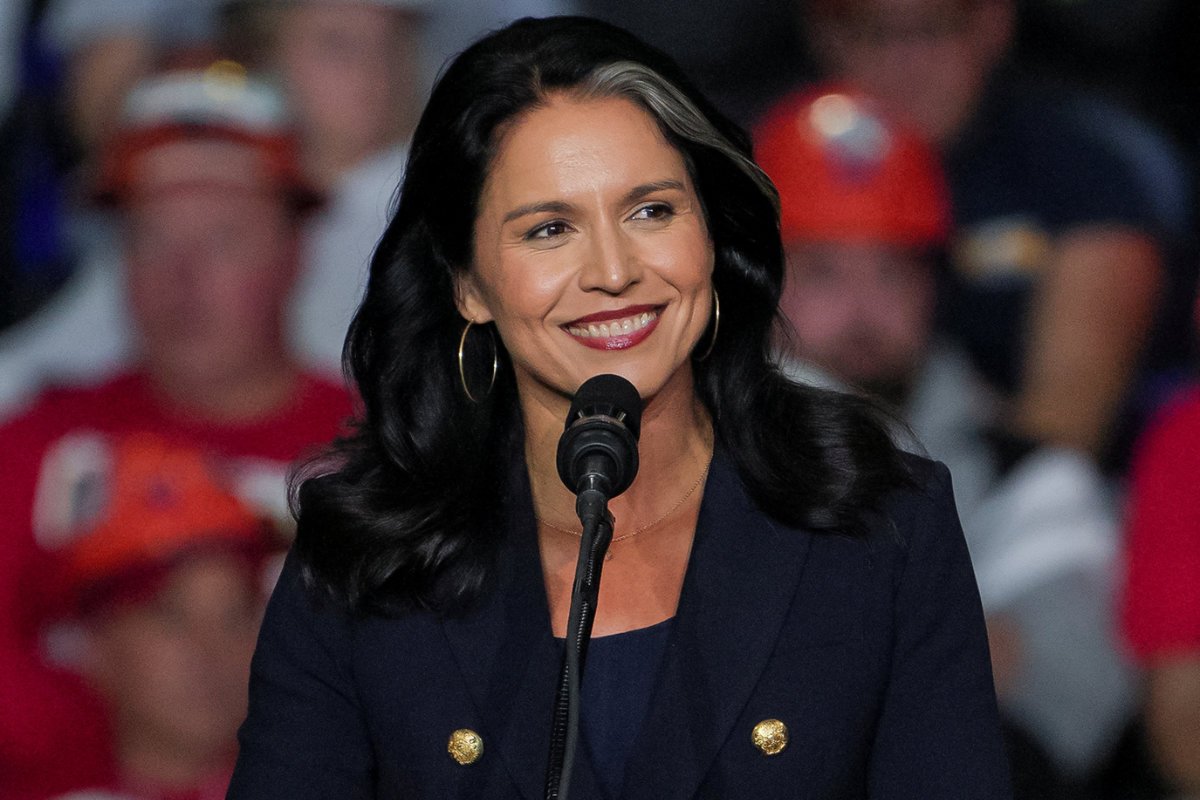
Tulsi Gabbard. (Getty Images via AFP)
Tulsi Gabbard — Director of National Intelligence
In October 2019, presidential candidate Hillary Clinton suggested that Gabbard, who at the time was a Democrat and a rival for the party’s backing, was being “groomed” by Russia, and that her foreign policy views echoed Russian interests.
Since then, the former Democratic congresswomen has switched sides, becoming an independent in 2022 and joining the Republicans this year.
Clinton’s unproven accusation is all the more startling now that 43-year-old Gabbard is about to be put in charge of more than a dozen intelligence agencies, from the FBI to the CIA.
Like many of Trump’s picks, Gabbard is a military veteran. She served in the Hawaii Army National Guard with tours of duty in Iraq and Kuwait. In Iraq from 2004 to 2005 she was part of a medical unit, where, she has said, “every single day, I was confronted with the very high human cost of war.” That experience, she added, shaped her outlook on America’s military adventures.
“I was not the same person when I came home from that war as I was when I left,” she said, “and it’s why I am so deeply committed to doing everything I possibly can to making sure that not a single one of our men and women in uniform, not another service member, has their life sacrificed in the pursuit of wars that have nothing to do with keeping the American people safe.”
On the campaign trail in 2019 she became known as the “anti-war presidential hopeful,” criticizing the conflicts in Iraq and Afghanistan for having taken “trillions of dollars out of our pockets for health care, infrastructure, education, for clean energy.” America, she said, must “end these wasteful regime-change wars.”
That, however, was then. Gabbard is, after all, no stranger to U-turns, having abandoned the Democrats for the Republicans. In a cabinet full of hawks such as Marco Rubio talking tough on China and Iran, it remains to be seen if the head of the world’s biggest spy machine is still keen to rein America in.

John Ratcliffe. (Getty Images via AFP)
John Ratcliffe — Director of CIA
John Ratcliffe, a former representative from Texas, has been chosen by Trump to serve as the CIA director. He currently serves as co-chair at the Center for American Security at the America First Policy Institute, a Trump-linked think tank. Ratcliffe served as the director of national intelligence from 2020 to 2021 during Trump’s first term. A CNN report said Ratcliffe “is seen as a largely professional and potentially less disruptive choice than some other former officials believed to have been under consideration.”

Alina Habba. (Getty Images via AFP)
Alina Habba — Trump attorney
Alina Saad Habba, a senior Trump adviser and attorney, said she was not considering the role of press secretary, for which she was hotly tippled before it went to Karoline Leavitt on Friday. An American lawyer and managing partner of a law firm based in New Jersey, Habba has been a legal spokesperson for Trump since 2021 and a senior adviser for MAGA, Inc., Trump’s Super PAC. Her parents were Chaldean Catholics who emigrated from Iraq to the US in the early 1980s.






























